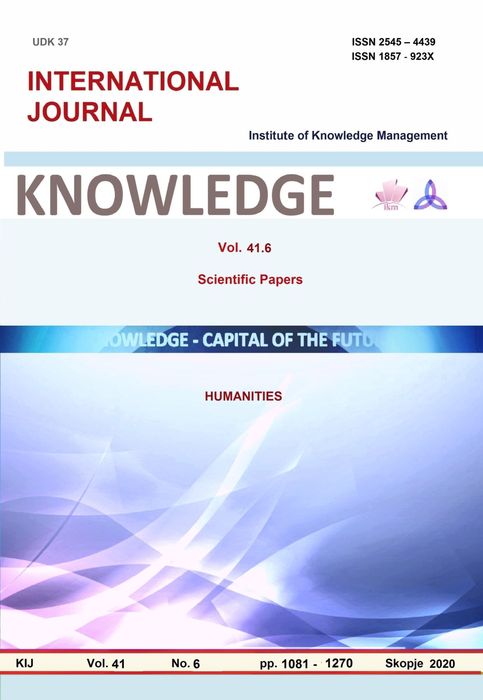PSYCHOLOGICAL ASPECTS AND DETERMINANTS OF CREATIVITY
PSYCHOLOGICAL ASPECTS AND DETERMINANTS OF CREATIVITY
Author(s): Ingrid Isinova, Radka MassaldjievaSubject(s): Cognitive Psychology
Published by: Scientific Institute of Management and Knowledge
Keywords: creativity; novelty and usefulness; cognition; personality; social context
Summary/Abstract: Creativity is a human capacity and activity that is difficult to define and even more difficult to describe and analyze comprehensively. It is considered that this term was first used in the 1920s by D. Simpson for the ability to abandon stereotypical ways of thinking. Since then, a large number of definitions of the term have been proposed giving rise to Ronald Lesher (1973) claim that there are probably as many definitions of creativity as there are researchers on it. The definition of Stein from 1953 is a basis for the subsequent interpretation of creativity. He draws attention to two important aspects of this complex and multifaceted phenomenon - the creative work is novel and acceptable or useful for a group of people at a certain time. These two characteristics - novelty and usefulness, are widely accepted in most definitions of creativity (Zeng et al., 2011), although there is still a debate about the definitions of these two terms (Batey, 2012; Batey & Furnham, 2006; Runco & Jaeger, 2012). This article is a short description of the results of our theoretical study of the mentioned two aspects, together with other important aspects and psychological determinants of creativity. This study was conducted as the basis for our experimental study of creativity and its impact on a number of psychological characteristics and behaviors, which will be reported elsewhere. We accept the definition of creativity as the ability to produce new responses to new situations and to produce novel outcomes (Luescher et al., 2016, Sternberg and Lubart 1999, p. 3). Following a review of creativity measurement by Said-Metwaly et al. (2017) the process approach, focussing on the mental processes, is the most common in the scientific literature, followed by the so called ―person‖, ―product‖ and ―press‖ approaches, related to the individual traits, to the outcome of creative behaviour and to the environmental factors respectively. They are linked to the main psychological determinants of creativity: the cognition, the personality and their life span development and the culture. The cognitive basis of creativity requires the consideration of the information processing and its brain mechanisms; the personality determinant implies the inclusion of a rich set of individual characteristics along with their development. At the same time, creativity is influenced by the environment, including cultural factors that must be taken into account. In conclusion, the present paper presents and analyzes important psychological aspects of one of the most complex phenomena – the creativity, in order to support its experimental study.
Journal: Knowledge - International Journal
- Issue Year: 41/2020
- Issue No: 6
- Page Range: 1201-1206
- Page Count: 6
- Language: Bulgarian

